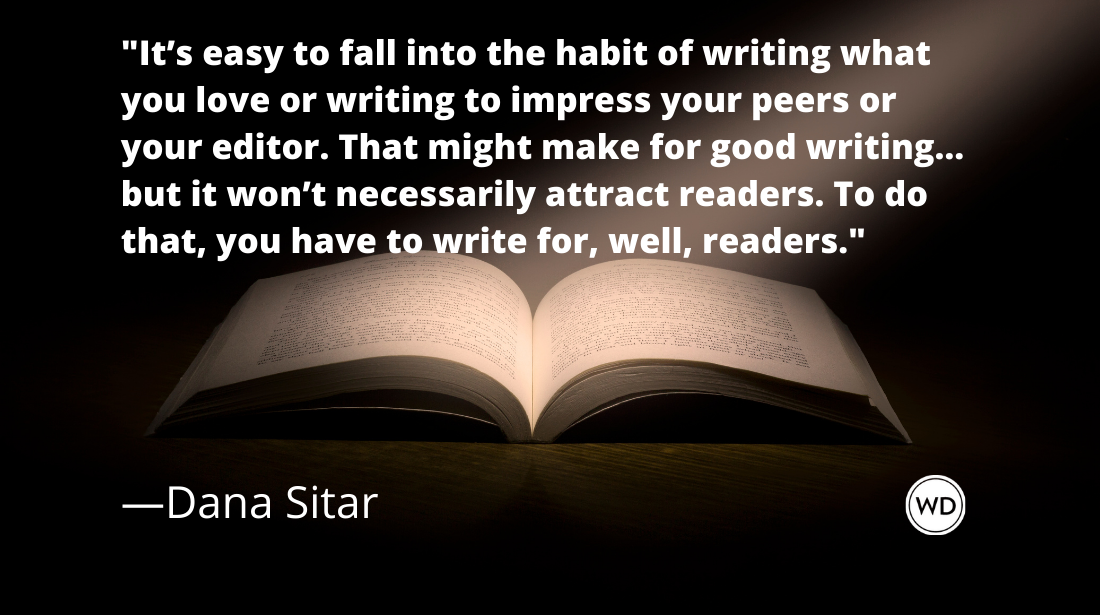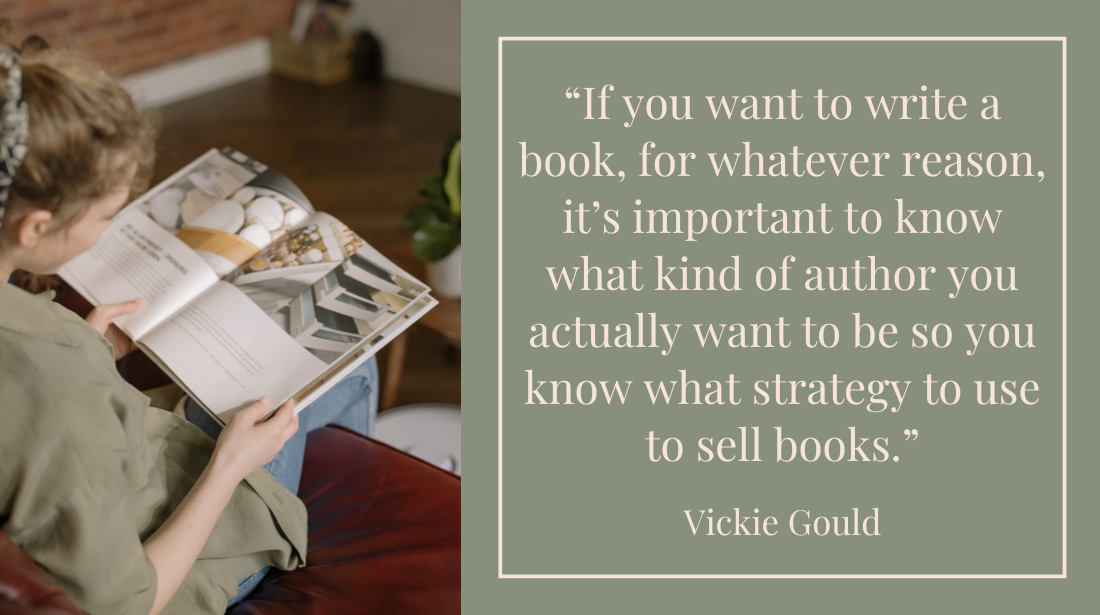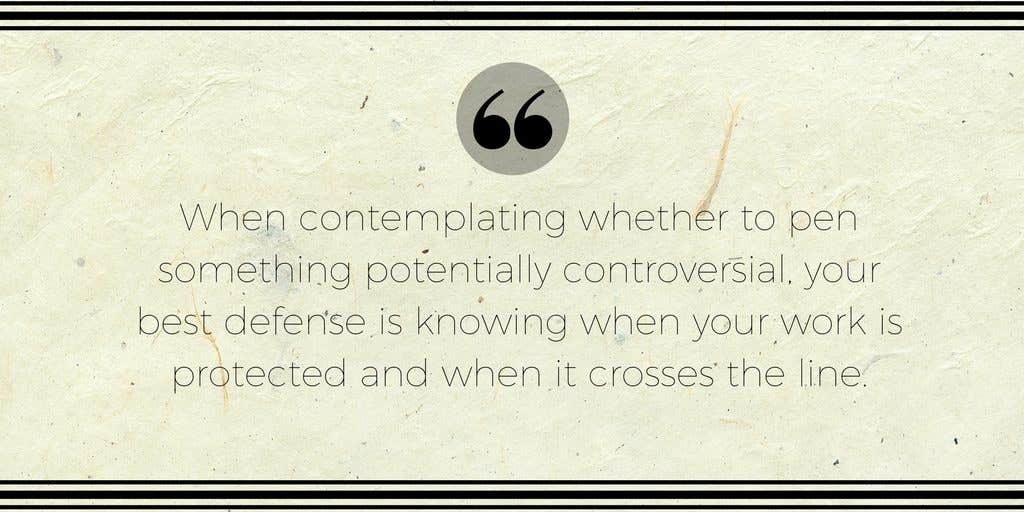Quota on Quotes?
Sometimes, a source’s exact words say everything that needs to be said. But not always.
I love the feeling when a person I'm interviewing says something quotable. It's as though a spotlight switches on or my hearing suddenly tunes in with crystal clarity. Even as I'm scribbling the quote in my notebook, I can envision how I might use it in the story. Sometimes I'll scratch a line beside the quote, or star it for easy recall when I'm reviewing my notes.
On the other hand, not every phrase that drops from even the best interviewee's lips is worth repeating verbatim in an article. I figure I've done something like 1,500 interviews over the years, ranging from grandmas with hat collections to Gene Simmons of the rock group KISS. So trust me on this: Nobody is that quotable. Sometimes you're better off paraphrasing and summarizing what a person told you.
Deciding when to use direct vs. indirect quotes can make the difference between a good story and a great one. In even the most dramatic story or powerful interview, you get only so much dynamite material; you have to make the most of it, while not diluting its impact with rambling quotes better off paraphrased.
For example, I recently wrote about a couple who'd founded a ranch to rescue horses that otherwise would be slaughtered.
At one point, two-thirds of the way through our conversation, the man said something I immediately recognized as a strong closing for my story. Here's how I used it:
"It's a crying shame what's happening to these horses," he says. "I'm not a religious man, but I asked God, if this is what I'm supposed to do, to let the right doors open.
"Well, doors are opening all over."
Notice the simple attribution—"he says." When you have a powerful quote, there's no need to try to punch it up with overwrought attribution: "he exclaims," "he stresses" or "he muses." Skip the adverbs, too: "she says forcefully," "she says fervently."
Don't feel bound by grade-school rules of paragraphing. You can use a paragraph break to suggest a brief pause, a breath or to set part of a quote apart—as I did in my example—for emphasis.
This closing quote would've been wasted by paraphrasing, which sucks the life out of the material:
He says it's a shame what's happening to these horses. Although not a religious man, he says he asked God to open the right doors if this is what he's indeed supposed to do, and that has been happening.
But there are instances where removing those quotation marks liberates you to simplify what a subject said, to explain it better, to interject necessary background material. In my horse ranch article, I opted for indirect quotes when reporting the steps the couple had taken to establish the ranch's nonprofit status.
In general, use direct quotes for emotion and personality; paraphrase for explication, efficiency and clarity. Here's a quick checklist to help you decide.
GO WITH DIRECT QUOTATION WHEN:
• Your subject said it better than you could. This seems obvious but actually takes some training of your "ear" to recognize. If in doubt, write it with direct quotation, then read that section of your story aloud to test.
• The quote reveals something about your subject's personality. My plain-spoken horse rescuer was the sort of man who'd say, "It's a crying shame"—but those same words in paraphrase would've sounded hokey.
• The quote packs an emotional punch. Direct quotes can convey strong feelings that indirect quotes can't match. In my story, I also quoted the man: "Can you see turning any of these beautiful animals into pocketbooks? Or shoes? Or dog food?" That sense of outrage would've been lost if recast in my authorial voice.
• The exact words are important. Whether you're seeking to canonize or hang your subject with his own words, only direct quotes can make the case: "I did not have sex with that woman," the president said. Not: The president denied having sex with Ms. Lewinsky.
TRY INDIRECT QUOTATION INSTEAD WHEN:
• The topic requires a clearer or more in-depth explanation than your interviewee gave you. Readers may need background information to understand what the subject said, so you intersperse this explication with indirect quotes.
• The topic is technical, the interviewee used jargon or the material otherwise needs to be retold in layman's terms. When that rocket scientist slips into verbiage, it's your job to translate.
• Direct quotation would slow down your story. Sometimes a section of your story simply isn't worth the words an interviewee devoted to it. You need to speed things up, summarize and elide by shedding the exact words and paraphrasing.
• You've already had several solid paragraphs of direct quotation. After all, you're telling this story, not your interview subject. Too much uninterrupted copy in the interviewee's voice can be wearying; sometimes a chunk of indirect quotation supplies a necessary variation in tone.
As you balance direct and indirect quotes throughout your story, however, avoid the temptation to drive right down the middle with a lot of partial quotes. These quotation tidbits interrupt the reading flow and make readers wonder if you're twisting the subject's words. Partial quotes usually signal that you would've been better off going with direct quotation:
He says it's "a crying shame" what's happening to these horses. Although not "a religious man," he says he asked God to open "the right doors" if this is what he's indeed supposed to do, and that has been happening.
When you're lucky enough to get great quotes, let them drive your story. With just a few departures for explanation, summary and variety, along with a little narrative scene-setting, you can turn that terrific interview into an equally terrific story.









